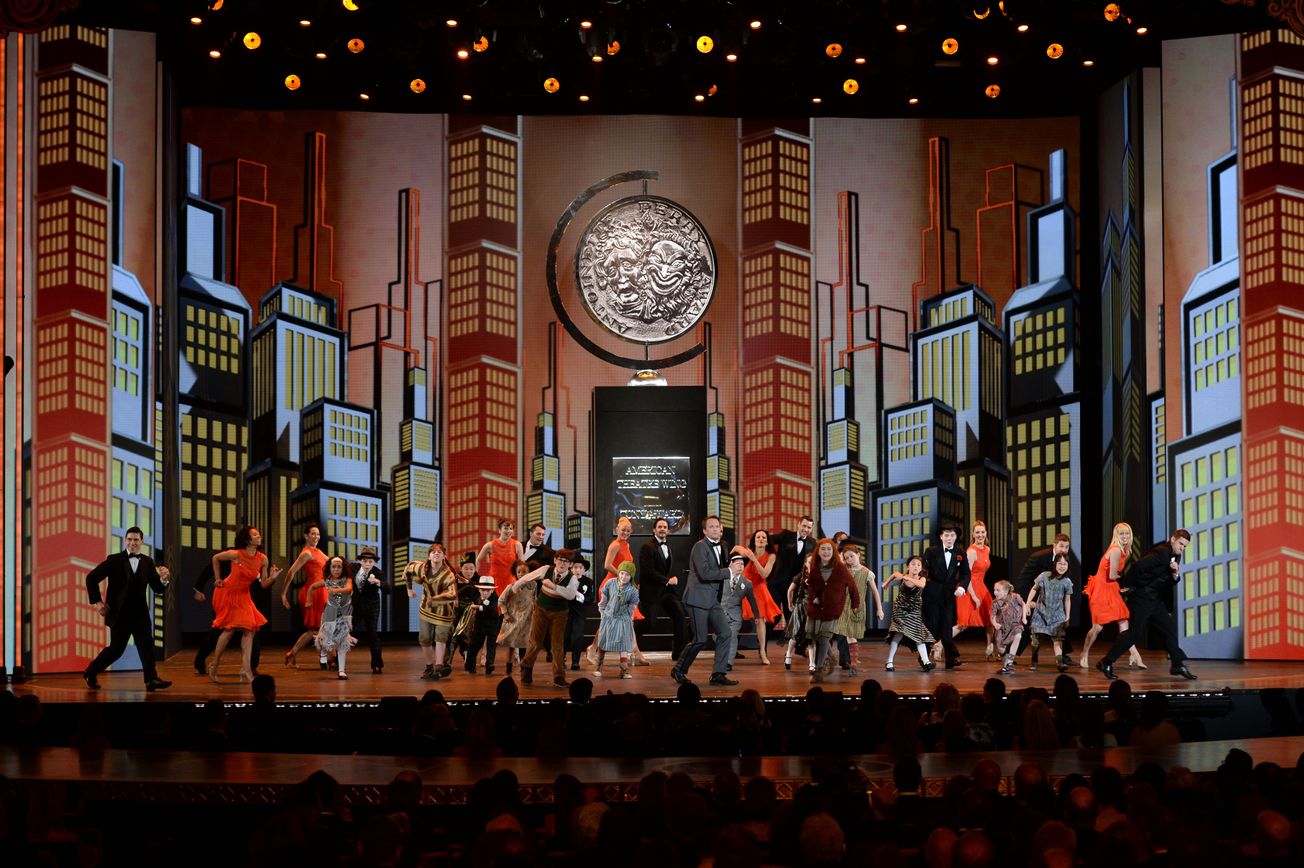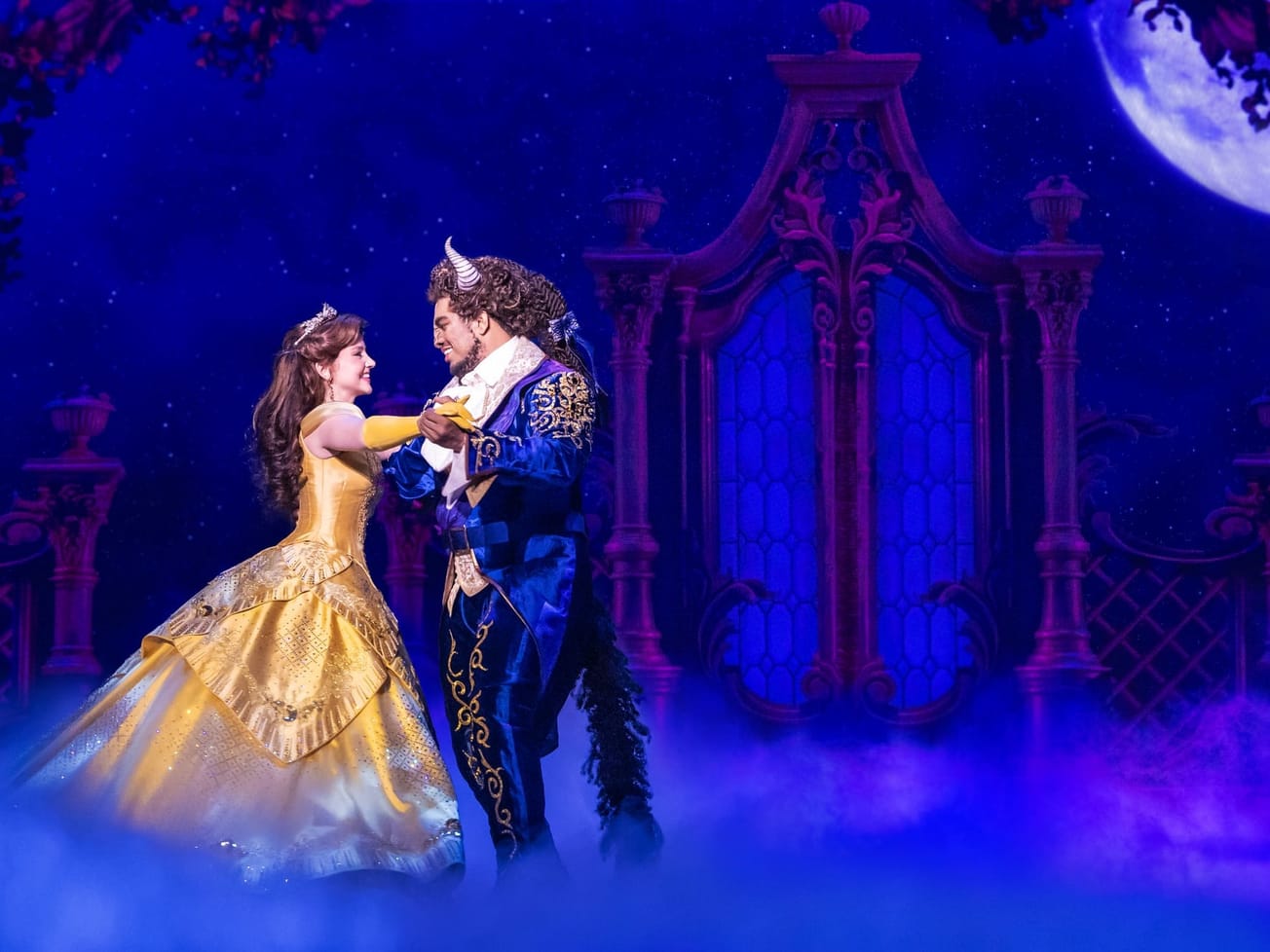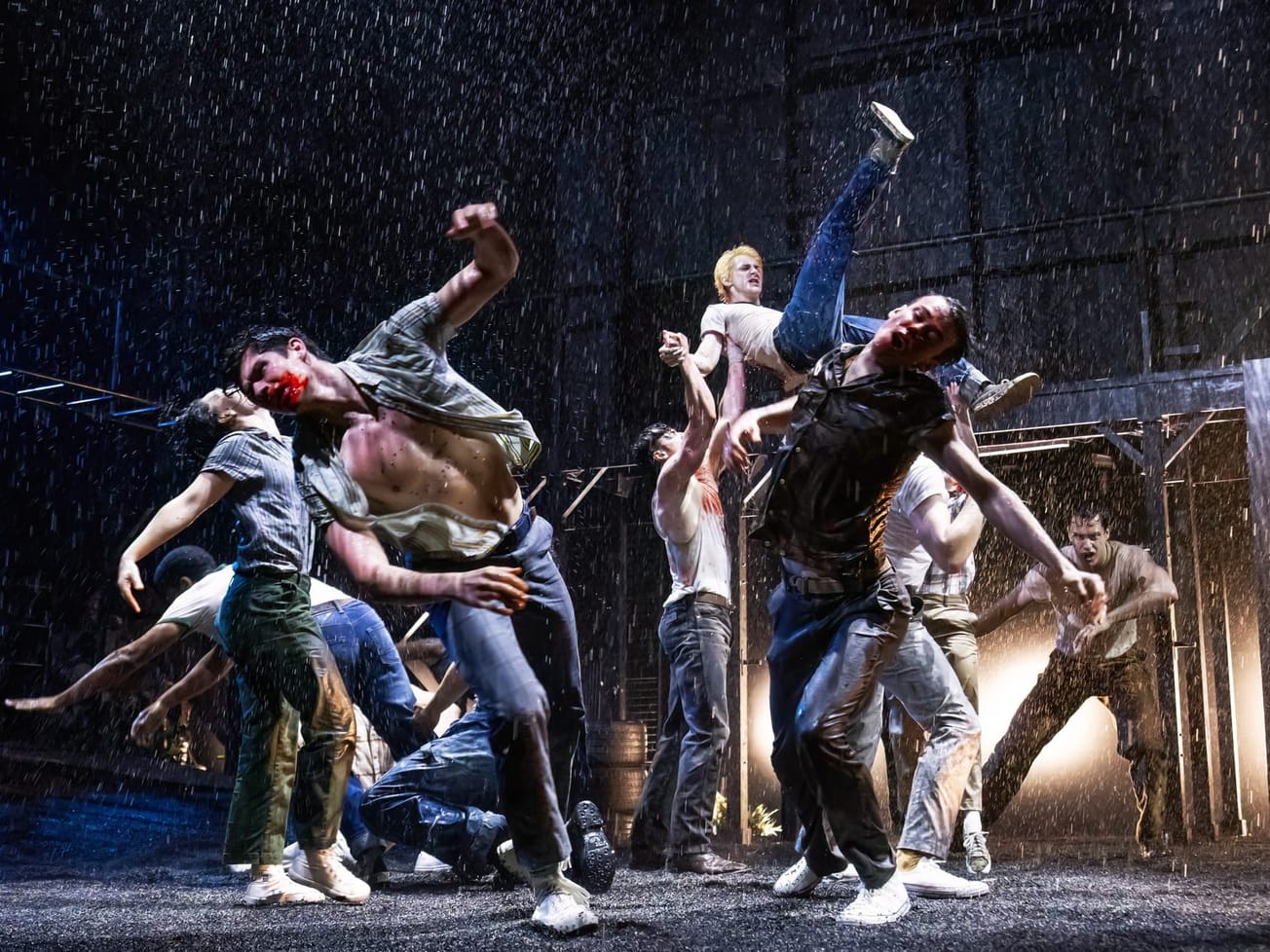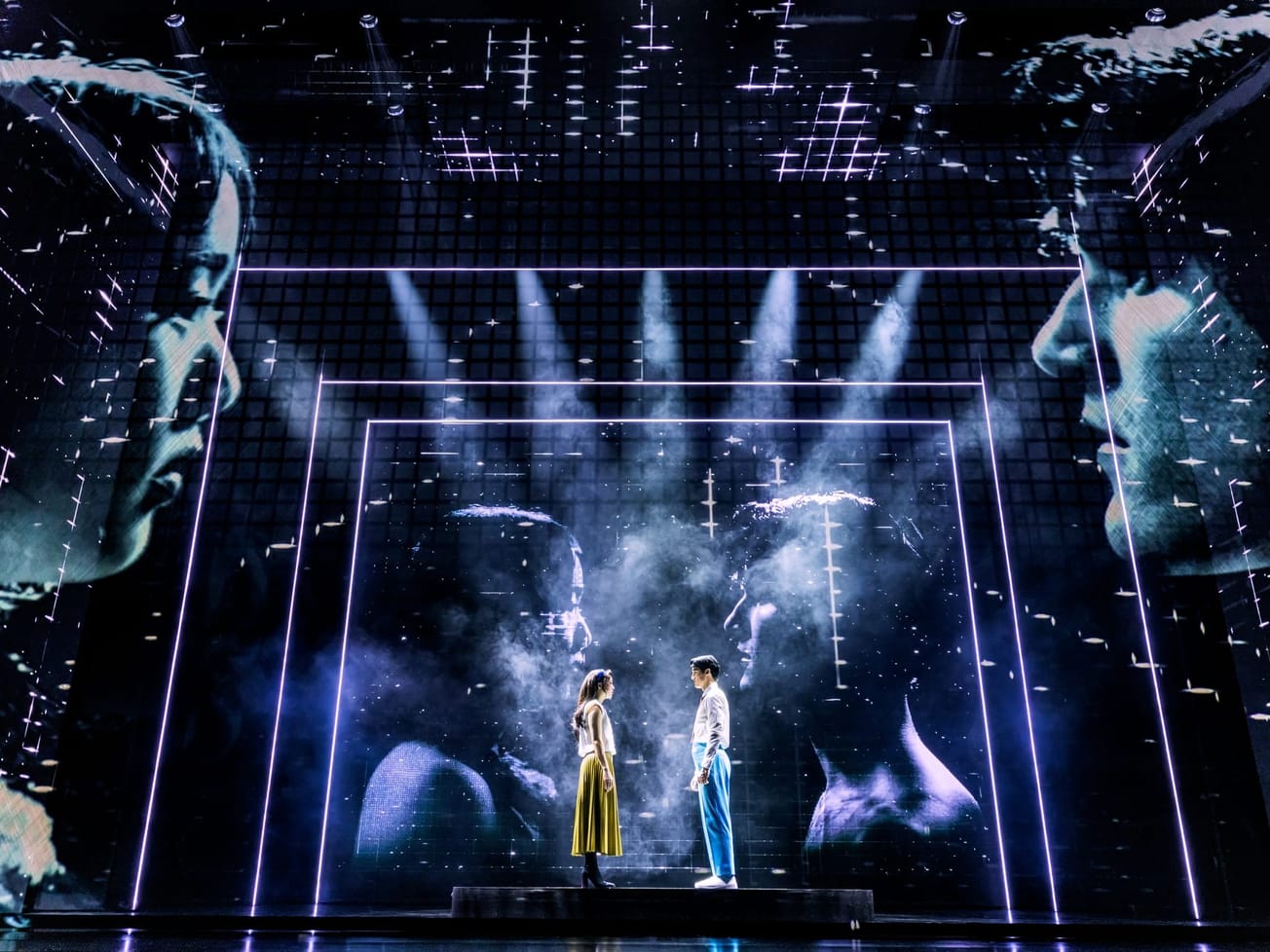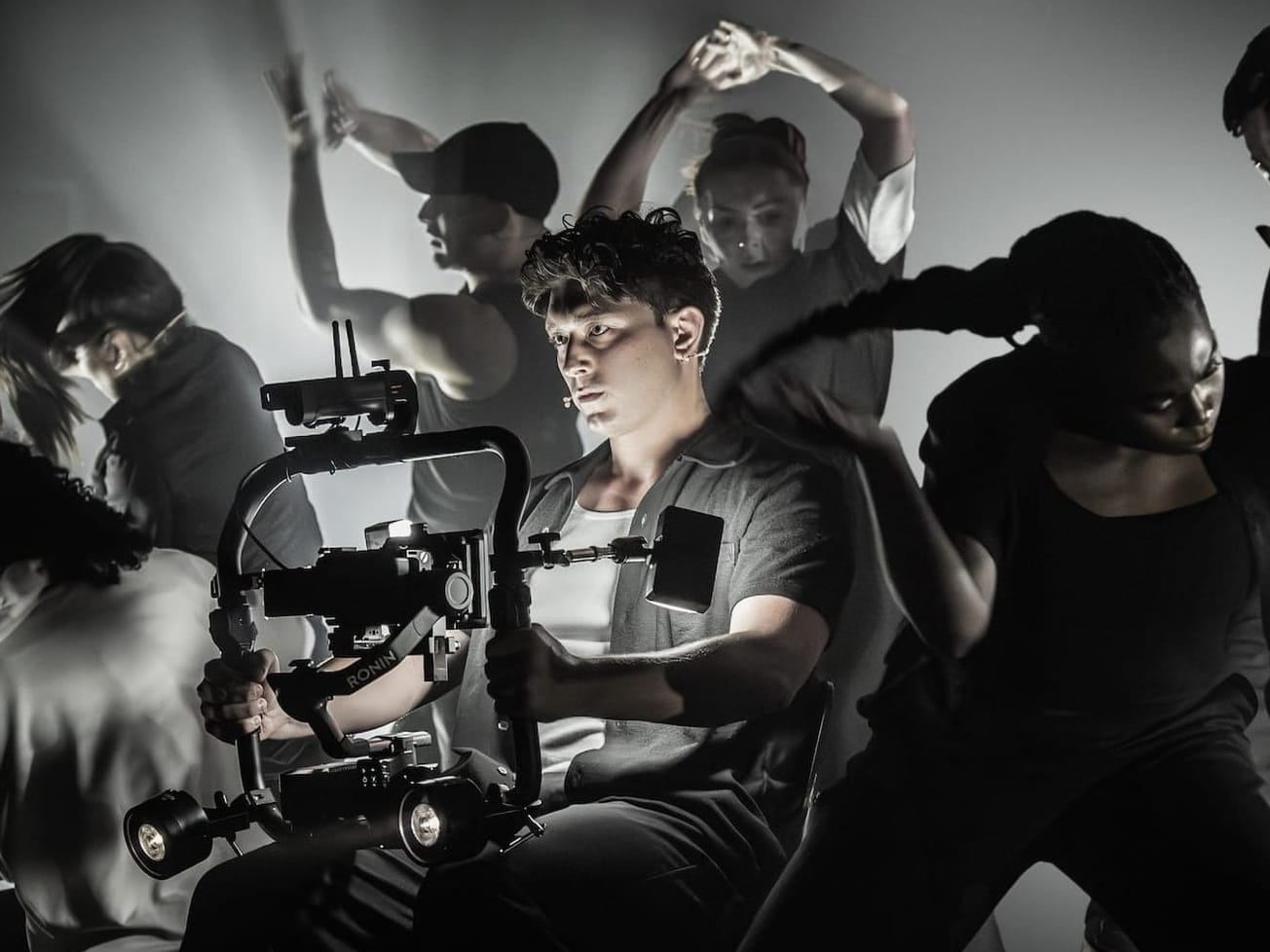After more than 15 years producing the Tony Awards, Ricky Kirshner and Glenn Weiss have learned the tips and tricks of putting on the show at Radio City Music Hall.
One trick: adding a false proscenium to reduce the size of the 100-foot-wide stage, so that the musical numbers do not look dwarfed by their surroundings.
With that issue behind them, Kirshner and Weiss are concentrated on overseeing more than 700 people inside the house, from stagehands to production staff and cast members, in addition to nailing down the running order and making sure hosts Sara Bareilles and Josh Groban have moments to shine.
Weiss, who is also directing the Tony Awards show, and Kirshner have been preparing for the awards show all season, as they both try to see every Broadway show when it opens to pick out a possible number for the broadcast.
Kirshner and Weiss recently spoke with Broadway News about how they balance the needs of the broadcast audience versus the theater community and what to expect from this year’s show.
Edited excerpts:
Broadway News: What are the particular challenges of producing and directing the Tony Awards?
Glenn Weiss: I direct the Oscars. I directed the Emmys. Those shows have a much longer period of time between nominations and shows, and on top of that, those shows are not necessarily performance-dependent on the nominations. So this is really a unique vehicle where there’s a really concentrated time period to mount pretty large scale productions, and the challenges are not just in us sitting here coming up with what song or what order, but the bigger part of it is the huge, huge logistics surrounding this, and getting casts in and out of the theater, having them change at their theater, but be bussed to Radio City.
Ricky Kirshner: It’s a logistical nightmare, nightmare’s a bad word, challenge, because of what Glenn just said. But it’s also one of the great creative challenges that we have all year.
BN: How do you determine the running order?
Kirshner: There’s the desire of what you think the running order should be and then the practical logistics of working it out, whether it’s nominees performing, if it’s a big scenic look that can’t follow a big scenic look for the logistics of the machine-working. There’s a lot of checkerboard compromising, as I call it, where you’re telling the story as best you possibly can, but part of that is your desire for a certain flow, and part of that is logistics.
Weiss: Like every creative process it starts with a desire to drive from point A to point Z in a certain way, and then it’s working around some of the more logistical challenges.
BN: How closely do you work with shows in deciding what number they will perform?
Weiss: The day of the nominations, leading into the next day, we get on the phone with the producers to have a preliminary conversation and then subsequent to that we have team meetings.
We respect that their creative team has put together this show over a long period of time and they’re very intimate with it. We’re coming with more of a 35,000-foot view saying, if somebody in the middle of the country is only seeing one thing from your show, and they’re not sitting in your theater watching two hours of a character doing one thing, if you take it out of context, it may not have the same result. So we try to bring that point of view, when presented with a potential number that we think might not work as well out of context.
BN: What is the rehearsal process leading up to the show?
Weiss: Any show performing, we’ll visit their theater in May, where they’ll perform the number for us. From that we’ll pull all of our cuing processes, whether it’s light cues, scenic cues, camera shots. Our team does a lot of homework based on that visit. Each show will come to Radio City a couple of days before the show and they’ll get a hour-and-a-half on stage with us. So we get to run each scene, but not in the order of the show.
We then mount the dress rehearsal on Sunday morning. Sunday morning is the first time that the show is run in order. So all the scenic changes, all the backstage mobility and movement, and casts getting dressed at their theater and bused to Radio City, all of that machinery is tested, which is why that dress rehearsal is one of the most important moments for us. It’s a big learning curve for everybody to understand the flow of the show.
BN: How much do ratings influence how you’re producing and directing the show?
Kirshner: Look I’ll say this, we all know the ratings of the Tonys. It’s no secret. They come out the day after the show, and CBS has supported this show for 40 years. That’s a pretty deep commitment, whereas most networks might say, with our ratings, there isn’t a commitment. They’re committed to Broadway. They’re committed to the arts. Would they like to get great ratings? Yes. Would we like to get great ratings? Yes. But there’s a lot of factors that go into ratings, so for us, we do the best show for the people that are watching.
Weiss: It is always a fine balance between the broadcast audience versus the in-the-theater audience. Sometimes there’s multiple shows opening within a week of nominations coming out. What that translates to, is if every seat in a brand-new show’s theater is occupied every single night, you’re not even filling a football stadium with the amount of people who’ve seen that show so far. So from a programming point of view, sometimes it’s challenging that there’s a lot of new material that a national television audience won’t be familiar with.
BN: Outside of nominated shows, how do you decide who else gets to perform?
Weiss: When we have time [in the broadcast], the first thing we do in terms of not nominated shows is look at nominations and what might have not gotten the best musical, but might have gotten best choreography or two of the performers got performer nominees. That gets weighed in the equation. But there’s no set formula.
BN: Do you decide which awards are not presented during the live broadcast?
Kirshner: Ultimately yes. It’s pretty much the same from year to year. It’s all about time.
Weiss: As much as that’s the term that’s used, we don’t feel like we take things off the air. Because on other awards shows like the Emmys, for example, there’s a creative ceremony a week before. We’re still presenting the awards in the same room, in front of the same people, and we play back at least a clip or moment from each winner so they are all recognized on the broadcast. It’s kind of an important distinction because yes it’s referred to as an off-air award, but the winner still gets on the air and online, and we think it’s really important that we didn’t remove things from the air.
BN: Have you discussed different ways of presenting the best play categories during the ceremony?
Kirshner: Some years there’s not so many running shows. Some years there’s open shows, but the actors aren’t available. A lot of the plays in the past have closed before we even get to the Tonys, so it makes it hard because the actors aren’t even around. So it doesn’t evolve as much as it changes based on the year and based on who’s available.
BN: What are your goals for this year with hosts Sara Bareilles and Josh Groban and with the show overall?
Weiss: If we can literally harness the chemistry and the enthusiasm for theater from these two throughout the night. They have different skill sets, they’re not Neil Patrick Harris, they’re not James Corden, so we’re not trying to create a show that we would create for Neil or that we would create for James. We’re trying to cater to these two talented, very enthusiastic Tony nominees. Our greatest goal is that you feel their love for theater and feel entertained and walk away just feeling good about it. That would be the big win.
Kirshner: And you want to stay with the show and watch all three hours and enjoy performances from the shows and buy a ticket when it’s over.


















































